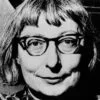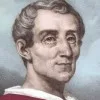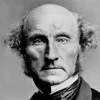Cities have the capability of providing something for everybody, only because, and only when, they are created by everybody.
Jane Jacobs (1916-2006) American-Canadian journalist, author, urban theorist, activist
The Death and Life of Great American Cities, Part 2, ch. 12 (1961)
(Source)
Quotations about:
diversity
Note not all quotations have been tagged, so Search may find additional quotes on this topic.
I admit that history is filled with religious wars, but let us be careful here, for it is not the multiplicity of religions which has produced these wars, but the spirit of intolerance stirring those who believed themselves to be in a dominant position.
[J’avoue que les histoires sont remplies des guerres de religion : mais, qu’on y prenne bien garde, ce n’est point la multiplicité des religions qui a produit ces guerres, c’est l’esprit d’intolérance, qui animoit celle qui se croyoit la dominante.]
Charles-Lewis de Secondat, Baron de Montesquieu (1689-1755) French political philosopher
Persian Letters [Lettres Persanes], Letter 86, Usbek to Mirza (1721) [tr. Healy (1964), Letter 85]
(Source)
(Source (French)). Alternate translations:I confess histories are full of religious wars: but do not let us take the thing wrong; it was not the diversity of religious that occasioned these wars; it was the untolerating spirit of that which thought she had the power in her hands.
[tr. Ozell (1760 ed.)]I acknowledge, that history is full of religious wars: but we must take care to observe, it was not the multiplicity of religions that produced these wars, it was the intolerating spirit which animated that which thought she had the power of governing.
[tr. Floyd (1762), Letter 85]I acknowledge that history is full of religious wars: but we must distinguish; it is not the multiplicity of religions which has produced wars; it is the intolerant spirit animating that which believed itself in the ascendant.
[tr. Davidson (1891)]I acknowledge that history is full of religious wars ; but it is an indisputable fact that these wars have not been produced by the multiplicity of religions, but rather by the intolerance of the dominant creed.
[tr. Betts (1897)]I admit that history is full of wars of religion; but on this point we must be very careful; it is not the multiplicity of religions that produced these wars, but the spirit of intolerance animating the religion that believed itself to be dominant.
[tr. Mauldon (2008), Letter 83]I admit that history is full of wars of religion. But one must be careful here: these wars were not caused by a multiplicity of religions, but rather by the spirit of intolerance shown by the dominant religion's believers.
[tr. MacKenzie (2014), Letter 85]
There’s a great deal to be said for nationalism, for keeping diversity — in literature, in art, in language, and in all kinds of cultural things. But when it comes to politics, I think nationalism is an unmitigated evil. I don’t think there’s a single thing to be said in its favor.
Bertrand Russell (1872-1970) English mathematician and philosopher
Interview by Woodrow Wyatt, BBC TV (1959)
Collected in Bertrand Russell's BBC Interviews (1959) [UK] and Bertrand Russell Speaks His Mind (1960) [US]. Reprinted (abridged) in The Humanist (1982-11/12), and in Russell Society News, #37 (1983-02).
HOLT: Every time someone steps up and says who they are, the world becomes a better, more interesting place.
Carly Hallam (b. 1987) America screenwriter, producer, actor
Brooklyn Nine-Nine, 5×10 “Game Night” (2017-12-12) [with Justin Noble]
(Source)
On Diaz coming out as bisexual.
I do not claim any ability to read God’s mind. I am sure of only one thing. When we look at the glory of stars and galaxies in the sky and the glory of forests and flowers in the living world around us, it is evident that God loves diversity. Perhaps the universe is constructed according to a principle of maximum diversity.
Freeman Dyson (1923-2020) English-American theoretical physicist, mathematician, futurist
“Progress in Religion,” Templeton Prize acceptance speech, Washington National Cathedral (9 May 2000)
(Source)
Science is not a monolithic body of doctrine. Science is a culture, constantly growing and changing. The science of today has broken out of the molds of classical nineteenth-century science, just as the paintings of Pablo Picasso and Jackson Pollock broke out of the molds of nineteenth century art. Science has as many competing styles as painting or poetry.
Freeman Dyson (1923-2020) English-American theoretical physicist, mathematician, futurist
Infinite in All Directions, Part 1, ch. 1 “In Praise of Diversity” (1988)
(Source)
Based on a lecture on "Science and Religion," National Conference of Catholic Bishops, Detroit (Sep 1986)
Science and religion are two human enterprises sharing many features. They share these features also with other enterprises such as art, literature and music. The most salient features of all these enterprises are discipline and diversity. Discipline to submerge the individual fantasy in a greater whole. Diversity to give scope to the infinite variety of human souls and temperaments. Without discipline there can be no greatness. Without diversity there can be no freedom. Greatness for the enterprise, freedom for the individual — these are the two themes, contrasting but not incompatible, that make up the history of science and the history of religion.
Freeman Dyson (1923-2020) English-American theoretical physicist, mathematician, futurist
Infinite in All Directions, Part 1, ch. 1 “In Praise of Diversity” (1988)
(Source)
Based on a lecture on "Science and Religion," National Conference of Catholic Bishops, Detroit (Sep 1986).
Precisely because the tyranny of opinion is such as to make eccentricity a reproach, it is desirable, in order to break through that tyranny, that people should be eccentric. Eccentricity has always abounded when and where strength of character has abounded; and the amount of eccentricity in a society has generally been proportional to the amount of genius, mental vigor, and more courage it contained. That so few dare to be eccentric marks the chief danger of the time.
John Stuart Mill (1806-1873) English philosopher and economist
On Liberty, ch. 3 “Of Individuality, as One of the Elements of Well-Being” (1859)
(Source)
Never be angry with your neighbor because his religious views differ from your own; for all branches of a tree do not lean the same way.
William Scott Downey (fl. 19th C) American baptist missionary, aphorist
Proverbs, ch. 6 #7 (1853)
(Source)
It seems to me that if there is some infinite being who wants us to think alike, he would have made us alike.
Robert Green Ingersoll (1833-1899) American lawyer, agnostic, orator
Speech to the Jury, Trial of C. B. Reynolds for Blasphemy, Morristown, New Jersey (May 1887)
(Source)
There is, in fact, no academic requirement to include more than one view of an academic issue, although it is usually pedagogically useful to do so. The true requirement is that no matter how many (or few) views are presented to the students, they should be offered as objects of analysis rather than as candidates for allegiance.
Stanley Fish (b. 1938) American literary theorist, legal scholar, author
“Conspiracy Theories 101,” New York Times (23 Jul 2006)
(Source)
Whether Parliament is either a representative body or an efficient one is questionable, but I value it because it criticizes and talks, and because its chatter gets widely reported. So two cheers for Democracy: one because it admits variety and two because it permits criticism. Two cheers are quite enough: there is no occasion to give three.
E. M. Forster (1879-1970) English novelist, essayist, critic, librettist [Edward Morgan Forster]
“What I Believe,” The Nation (16 Jul 1938)
(Source)
Difference must be not merely tolerated, but seen as a fund of necessary polarities between which our creativity can spark like a dialectic. Only then does the necessity for interdependency become unthreatening. Only within that interdependency of different strengths, acknowledged and equal, can the power to seek new ways of being in the world generate, as well as the courage and sustenance to act where there are no charters.
Audre Lorde (1934-1992) American writer, feminist, civil rights activist
“The Master’s Tools Will Never Dismantle the Master’s House” (1979)
(Source)
Equality, rightly understood, as our founding fathers understood it, leads to liberty and to the emancipation of creative differences. Wrongly understood, as it has been so tragically in our time, it leads first to conformity and then to despotism.
Never hire or promote in your own image. It is foolish to replicate your strength. It is idiotic to replicate your weakness. It is essential to employ, trust, and reward those whose perspective, ability, and judgment are radically different from yours. It is also rare, for it requires uncommon humility, tolerance, and wisdom.
Dee W. Hock (1929-2022) American businessman
In M. Mitchell Waldrop, “Dee Hock on Management,” Fast Company (Oct/Nov 1996)
(Source)
It is not by wearing down into uniformity all that is individual in themselves, but by cultivating it and calling it forth, within the limits imposed by the rights and interests of others, that human beings become a noble and beautiful object of contemplation; and as the works partake the character of those who do them, by the same process human life also becomes rich, diversified, and animating, furnishing more abundant aliment to high thoughts and elevating feelings, and strengthening the tie which binds every individual to the race, by making the race infinitely better worth belonging to. In proportion to the development of his individuality, each person becomes more valuable to himself, and is therefore capable of being more valuable to others
One lesson the arts teach is that there can be more than one answer to a question and more than one solution to a problem; variability of outcome is okay. […] The arts teach children that their personal signature is important and that answers to questions and solutions to problems need not be identical. There is, in the arts, more than one interpretation to a musical score, more than one way to describe a painting or a sculpture, more than one appropriate form for a dance performance, more than one meaning for a poetic rendering of a person or a situation. In the arts diversity and variability are made central. That is one lesson that education can learn from the arts.
Elliot Eisner (1933-2014) Academic, researcher, professor of art and education
The Arts and the Creation of Mind, ch. 8 (2002)
(Source)
Variant: "The arts teach children that problems can have more than one solution; questions can have more than one answer. If they do anything, the arts embrace diversity of outcome."
A man of abilities and character, of any sect whatever, may be admitted to any office or public trust under the United States. I am a friend to a variety of sects, because they keep one another in order. How many different sects are we composed of throughout the United States? How many different sects will be in congress? We cannot enumerate the sects that may be in congress. And there are so many now in the United States that they will prevent the establishment of any one sect in prejudice to the rest, and will forever oppose all attempts to infringe religious liberty. If such an attempt be made, will not the alarm be sounded throughout America? If congress be as wicked as we are foretold they will, they would not run the risk of exciting the resentment of all, or most of the religious sects in America.
Let us not torment each other because we are not all alike, but believe that God knew best what He was doing in making us so different. So will the best harmony come out of seeming discords, the best affection out of differences, the best life out of struggle, and the best work will be done when each does his own work, and lets every one else do and be what God made him for.
MIRANDA: O, wonder!
How many goodly creatures are there here!
How beauteous mankind is! O brave new world,
That has such people in’t!William Shakespeare (1564-1616) English dramatist and poet
Tempest, Act 5, sc. 1, l. 250ff (5.1.250-253) (1611)
(Source)
There is a variety of gifts but always the same Spirit; there are all sorts of service to be done, but always to the same Lord; working in all sorts of different ways in different people, it is the same God who is working in all of them.
[Διαιρέσεις δὲ χαρισμάτων εἰσίν τὸ δὲ αὐτὸ Πνεῦμα. καὶ διαιρέσεις διακονιῶν εἰσιν καὶ ὁ αὐτὸς Κύριος. καὶ διαιρέσεις ἐνεργημάτων εἰσίν (καὶ) ὁ δὲ αὐτὸς Θεός ὁ ἐνεργῶν τὰ πάντα ἐν πᾶσιν.]
The Bible (The New Testament) (AD 1st - 2nd C) Christian sacred scripture
1 Corinthians 12: 4-6 [JB (1966)]
(Source)
(Source (Greek)). Alternate translations:Now there are diversities of gifts, but the same Spirit. And there are differences of administrations, but the same Lord. And there are diversities of operations, but it is the same God which worketh all in all.
[KJV (1611)]There are different kinds of spiritual gifts, but the same Spirit gives them. There are different ways of serving, but the same Lord is served. There are different abilities to perform service, but the same God gives ability to all for their particular service.
[GNT (1976)]There are many different gifts, but it is always the same Spirit; there are many different ways of serving, but it is always the same Lord. There are many different forms of activity, but in everybody it is the same God who is at work in them all.
[NJB (1985)]There are different kinds of gifts, but the same Spirit. There are different kinds of service, but the same Lord. There are different kinds of working, but the same God works all of them in all men.
[NIV (2011 ed.)]There are different spiritual gifts but the same Spirit; and there are different ministries and the same Lord; and there are different activities but the same God who produces all of them in everyone.
[CEB (2011)]Now there are varieties of gifts but the same Spirit, and there are varieties of services but the same Lord, and there are varieties of activities, but it is the same God who activates all of them in everyone.
[NRSV (2021 ed.)]
There is nowhere you can go and only be with people who are like you. Give it up.
Bernice Johnson Reagon (b. 1942) American song leader, composer, scholar, social activist
“Coalition Politics: Turning the Century,” presentation, West Coast Women’s Music Festival, Yosemite (1981)
(Source)
























